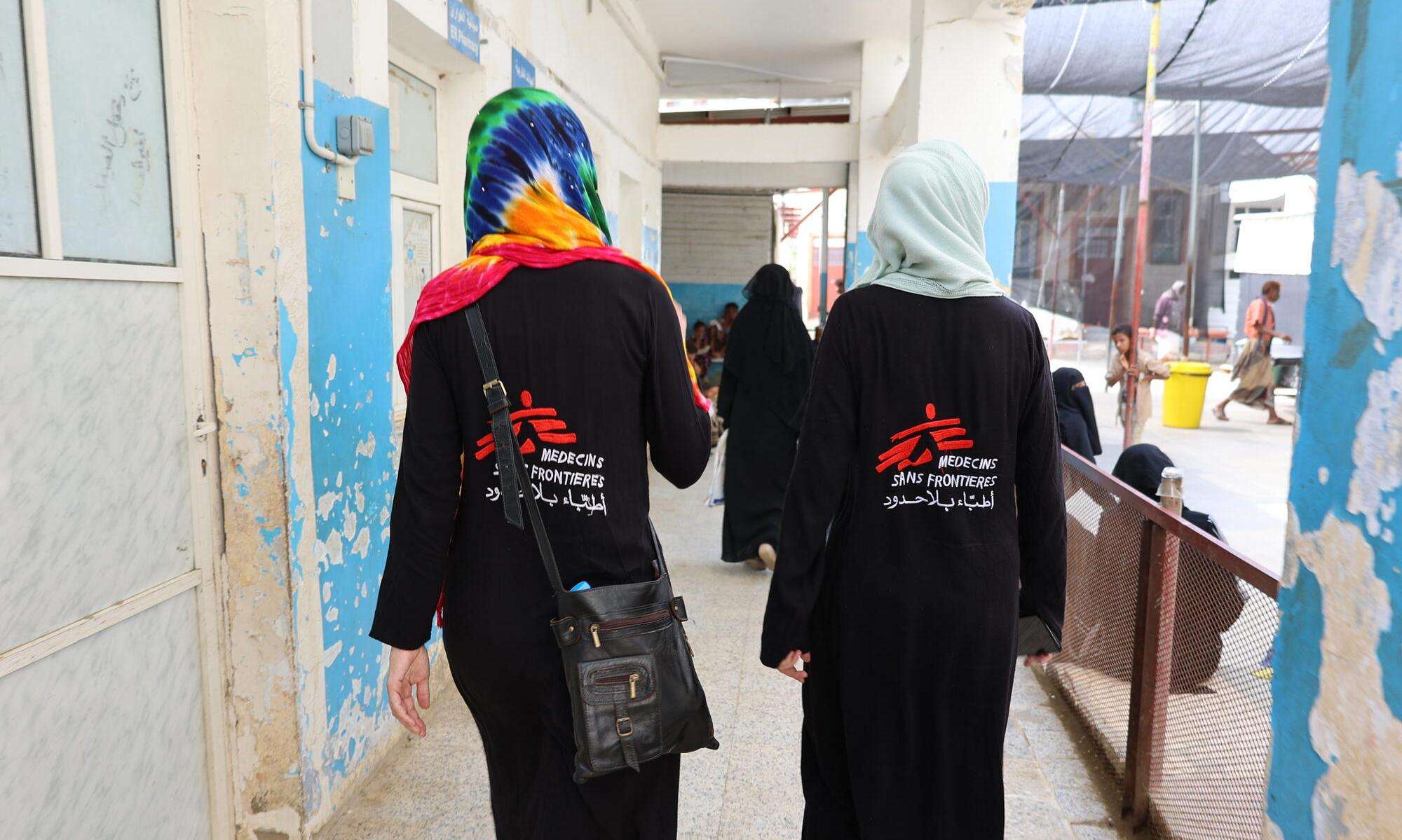NEW YORK, MARCH 8, 2023—The high number of people seeking treatment at Abs hospital in Yemen’s Hajjah governorate has left hospital staff and essential services overwhelmed, said the international medical humanitarian organization Doctors Without Borders/Médecins Sans Frontières (MSF) today. Patients frequently have to share beds, and the emergency room, maternity unit, neonatal unit, and inpatient therapeutic feeding center frequently operate beyond 100 percent capacity. To reduce the strain on the hospital, health authorities, donors, and additional health organizations must urgently step up and support the provision of health care in the region, where people have a range of urgent health needs, said MSF.
“In response to the increase in patient numbers over the years, we’ve adapted our support to Abs hospital by extending different departments and increasing bed capacity,” said Caroline Ducarme, MSF head of mission in Yemen. “This support to Abs hospital has become one of MSF’s biggest humanitarian responses worldwide, but today we have reached the limit of our capacity to respond—in terms of space, human resources, and supply.”
The increased demand on Abs hospital’s services is due to a number of factors, including the protracted conflict in Yemen; the lack of affordable quality primary health care, which means that patients who would otherwise seek care in local clinics are obliged to go to hospitals for treatment for conditions like malnutrition, often not arriving until their condition is serious; and the poor living conditions and water and sanitation services in camps for displaced people in Abs district that can fuel disease outbreaks like measles.
The humanitarian and medical situation was exacerbated in 2022 when funding cuts caused several health providers to stop working in Hajjah governorate and nearby Al Hudayda governorate. As a result, services were discontinued at several health facilities, while others were left with insufficient medical supplies—increasing the pressure on Abs hospital.
“Even though we have significantly developed our activities in Abs hospital over the years—increasing bed capacity from 33 to 288 and supporting more than 80 percent of the hospital departments—we are still not able to cover everyone’s needs,” Ducarme said.
Abs hospital is the only hospital in the region, serving approximately one million people. MSF is the only international organization with a permanent presence in the area. In 2022, MSF’s teams at Abs hospital provided 79,325 emergency consultations, assisted 10,181 deliveries, cared for 3,095 newborn babies in the neonatal unit, treated 2,944 malnourished children in the inpatient therapeutic feeding center, performed 5,237 surgical interventions, and treated 1,202 patients for malaria.
MSF will continue to support Abs hospital in 2023 and is currently in the process of reorganizing its activities in collaboration with the ministry of health. This plan, which was launched in 2022, includes revising the referral and admission criteria for some services and handing over others to the ministry of public health, in addition to implementing adjustments in the management of human resources. Through this reorganization, MSF aims to improve the quality of care and focus on the most vulnerable patients and lifesaving activities, while building up the capacity of the national health system to ensure that people have access to health care in Abs district.
“The drastic impact of the protracted conflict on the health system in Yemen requires additional efforts from donors and humanitarian organizations to develop and strengthen the health care system to ensure that quality, affordable health care is accessible to all in Abs district in Hajjah governorate and across Yemen,” Ducarme said. “Urgent action is also required from health authorities and humanitarian and development organizations to address the gaps in primary health care, to ensure timely access to medical care, and to reduce risks of complications that lead to an increased demand for secondary health care services.”
MSF has been working in Yemen since 1986, and its teams have worked continuously in the country since 2007. In 2022, MSF teams worked in 12 hospitals and provided support to another 16 health facilities across 13 governorates. MSF currently has 632 staff in Abs, including some ministry of health staff that it supports.
Yemen: Medical needs overwhelm Abs hospital
Authorities, donors, and humanitarian organizations must increase support for health services across region

Yemen 2022 © Jinane Saad/MSF
